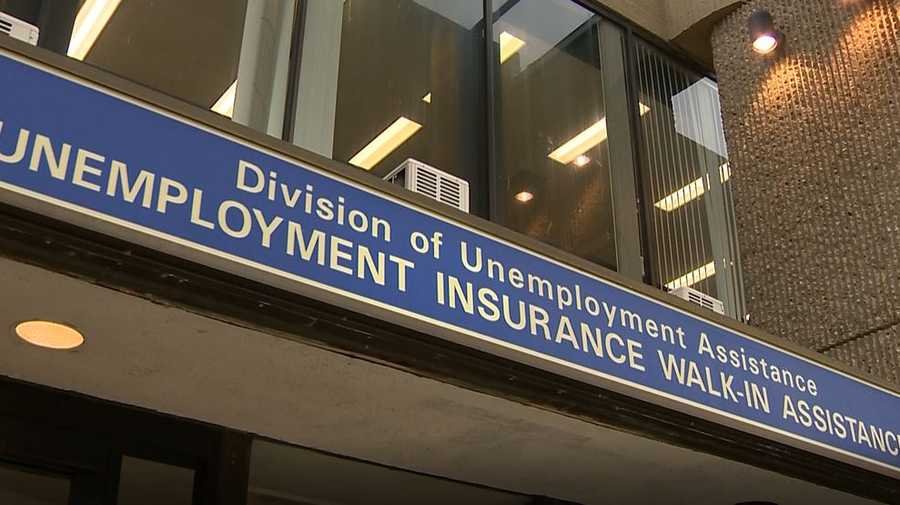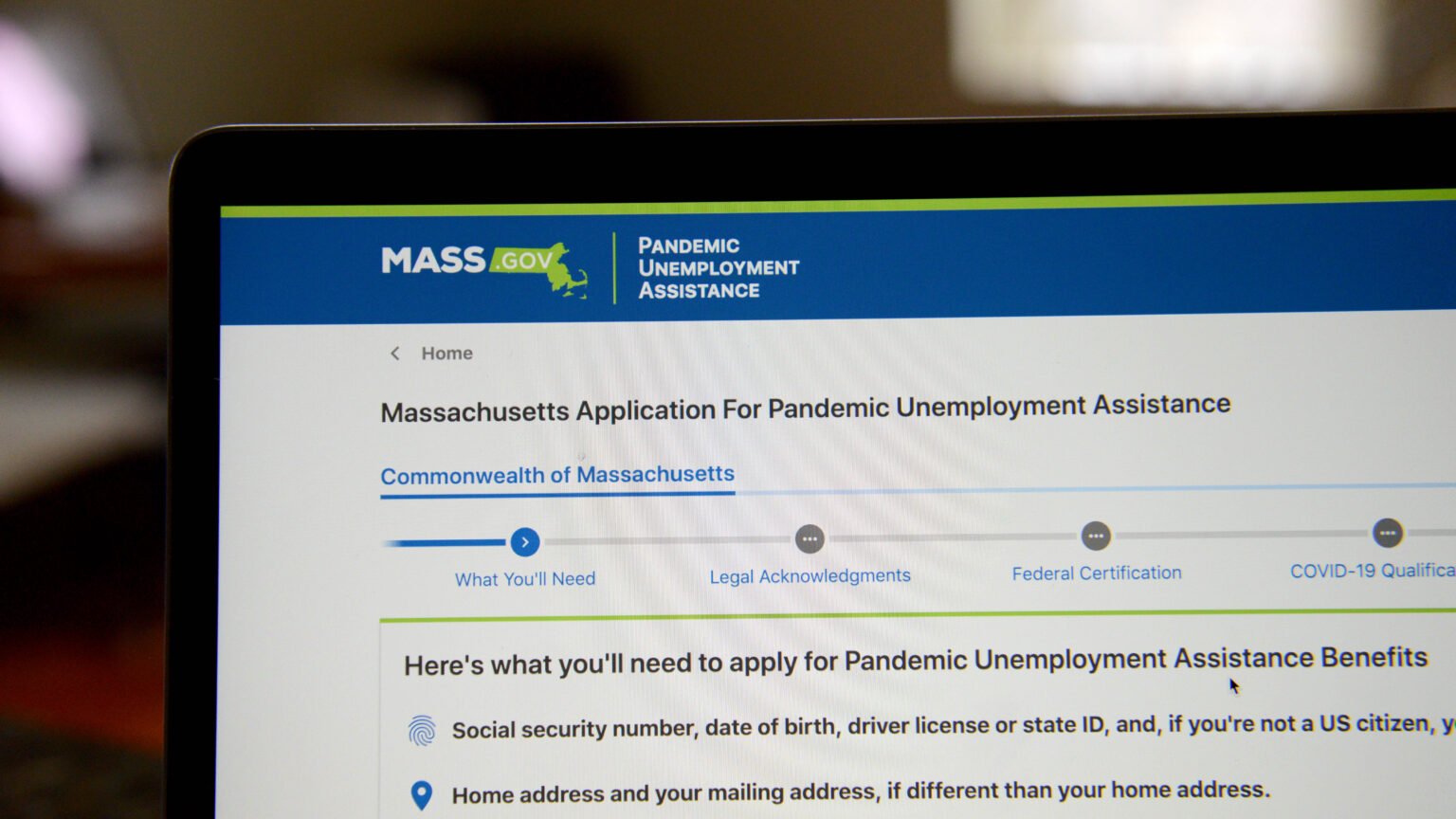John was sitting by his laptop on a cool Boston morning, frantically going through job listings. Following his dismissal from a nearby manufacturing firm, he had to negotiate the intricacies of Massachusetts’ unemployment insurance program. John’s trip, like that of many others in the state, brought to light the difficulties and uncertainties associated with unemployment. The event made it clear how crucial it is to comprehend the causes of unemployment as well as the resources accessible to individuals who are impacted.
Despite having a thriving culture, a long history, and excellent educational facilities, Massachusetts nonetheless suffers serious economic difficulties. Each year, thousands of residents in the state are impacted by unemployment, a serious problem. The changes in unemployment rates have a significant impact on people’s lives as well as communities since they are a reflection of larger economic trends.
We examine the patterns, reasons, and remedies associated with unemployment in Massachusetts in this thorough investigation. We’ll look at past data, investigate what causes unemployment, and talk about the steps being done to solve the problem. This article offers insightful information about the dynamics of unemployment in Massachusetts, whether you are a job seeker, policymaker, or just interested in the state’s economy.

Historical Employment Trends in Massachusetts
Comprehending the past patterns of unemployment is crucial for placing the current state of affairs in perspective. Massachusetts has gone through several stages of economic expansion and contraction over the years, with varying effects on the labor market.
Massachusetts’s Historical Unemployment Rates, 2010–2023
| Year | Unemployment Rate (%) |
|---|---|
| 2010 | 8.3 |
| 2011 | 7.3 |
| 2012 | 6.7 |
| 2013 | 6.5 |
| 2014 | 5.8 |
| 2015 | 4.8 |
| 2016 | 3.7 |
| 2017 | 3.5 |
| 2018 | 3.3 |
| 2019 | 2.9 |
| 2020 | 8.6 |
| 2021 | 5.4 |
| 2022 | 4.5 |
| 2023 | 3.8 |
Factors Affecting Massachusetts’s Unemployment
Unemployment rates in Massachusetts are influenced by a number of variables, such as industry trends, demographic shifts, and state of the economy. We can learn more about the reasons for the state’s unemployment by looking at these variables.
Financial Situation
The state of Massachusetts’s economy as a whole has a big impact on unemployment rates. Jobs have increased as a result of economic downturns like the Great Recession and the COVID-19 epidemic. On the other hand, times of stability and economic expansion typically result in lower unemployment.
Sectoral Patterns
Key industries in Massachusetts’ varied economy include manufacturing, technology, healthcare, and education. Changes in these industries may have an effect on employment levels. Technological and automation improvements, for example, have the potential to eliminate jobs in some areas while opening up new ones.
Shifts in Demography
Unemployment rates can also be impacted by changes in the work force, migration trends, and population growth. For instance, an aging population may result in more people retiring, which could shrink the workforce and affect jobless rates.
The COVID-19 Pandemic’s effects on unemployment in Massachusetts
Massachusetts was not an exception to the global economic effects of the COVID-19 pandemic. The state’s unemployment rate reached an all-time high of 8.6% in 2020. Widespread company closures, job losses, and a sharp decline in economic activity were caused by the epidemic.
| Month/Year | Unemployment Rate (%) |
|---|---|
| March 2020 | 3.0 |
| April 2020 | 16.2 |
| May 2020 | 15.2 |
| June 2020 | 17.7 |
| July 2020 | 16.1 |
| August 2020 | 11.5 |
| September 2020 | 9.6 |
| October 2020 | 8.2 |
| November 2020 | 7.4 |
| December 2020 | 8.6 |
Programs for Government Response and Assistance
The Massachusetts government launched a number of assistance initiatives to help people and businesses in response to the state of unemployment that was rising. These steps were taken in an attempt to lessen the pandemic’s negative economic effects and assist people who had lost their jobs.
Insurance for Unemployment
Massachusetts provides unemployment insurance (UI) compensation to qualified workers who lost their jobs due to circumstances beyond their control. The state increased UI benefits during the pandemic, giving individuals in need more financial support. A significant contribution was also made by the Federal Pandemic Unemployment Compensation (FPUC) program, which provided UI beneficiaries with an additional $600 per week.
Employee Development and Training
The state government has made investments in workforce development and training initiatives to assist jobless people in learning new skills and enhancing their employability. Workshops for job training, vocational education, and collaborations with nearby companies to generate employment prospects are some of these activities.
Ways to Cut Massachusetts’s Unemployment Rate
A diverse strategy that incorporates small company support, education and training, and economic policy is need for address unemployment. These are some of the most important tactics being use in Massachusetts to lower the unemployment rate.
Economic Growth and the Creation of Jobs
Reducing unemployment requires promoting economic growth. The government of Massachusetts has concentrated on luring in new companies, assisting those that already exist, and funding infrastructural improvements in order to generate employment. The goal of programs like tax breaks, subsidies, and low-interest loans is to promote company growth and employment creation.
Learning and Developing Skills
It is essential to invest in education and skill development to equip the workforce to meet the needs of the contemporary economy. There are numerous colleges and universities in Massachusetts that offer top-notch training and educational opportunities. The state also encourages apprenticeships and vocational education to give people the hands-on training required in a variety of industries.
Assistance for Small Enterprises
A large percentage of job possibilities in Massachusetts are generat for small enterprises, which are essential to the state’s economy. The state provides grants, loans, and technical assistance, among other support programs, to ensure the success of small businesses. The goal of Massachusetts’s small business-friendly policies is to lower unemployment and increase employment.
FAQs Regarding Massachusetts’s Unemployment
What is Massachusetts’s current unemployment rate?
The unemployment rate in Massachusetts is projected to be 3.8% in 2023.
How do I file for Massachusetts unemployment benefits?
The Massachusetts Department of Unemployment Assistance (DUA) website allows you to apply online for unemployment benefits.
What kind of assistance programs are offered to jobless people in Massachusetts?
Massachusetts provides a range of assistance programs, such as workforce training, job placement services, and unemployment insurance.
What impact has the COVID-19 outbreak had on Massachusetts’s unemployment rate?
The epidemic dramatically raised unemployment rates, which peaked in June 2020 at 17.7%. To help people impacted, the state launched a number of support initiatives.
Which sectors of the Massachusetts economy are most impacted by unemployment?
The manufacturing, retail, and hospitality sectors have been especially hard hit by Massachusetts’s high unemployment rate.
What steps are being taken in Massachusetts to lower unemployment?
In order to lower unemployment, the state is concentrating on economic stimulation, job creation, education and skill development, and assistance for small enterprises.
Conclusion
Massachusetts’s unemployment rate is still a serious problem that needs to address on a constant basis. We can have a greater knowledge of the intricacies of the state’s unemployment landscape by knowing historical trends, causes that contribute to unemployment, and the effects of momentous events like the COVID-19 pandemic. The government of Massachusetts, working with businesses and educational institutions, is still putting policies into place to boost economic expansion, create jobs, and assist those who are unemploye. Massachusetts hopes to create a strong and thriving economy through these initiatives for all of its citizens.
Let us conclude by saying that the problem of unemployment in Massachusetts is complex and calls for coordinated efforts from a range of partners. Massachusetts is striving for a future in which every citizen has access to opportunities for stable and rewarding employment by emphasizing economic growth, education, and assistance for small companies.


